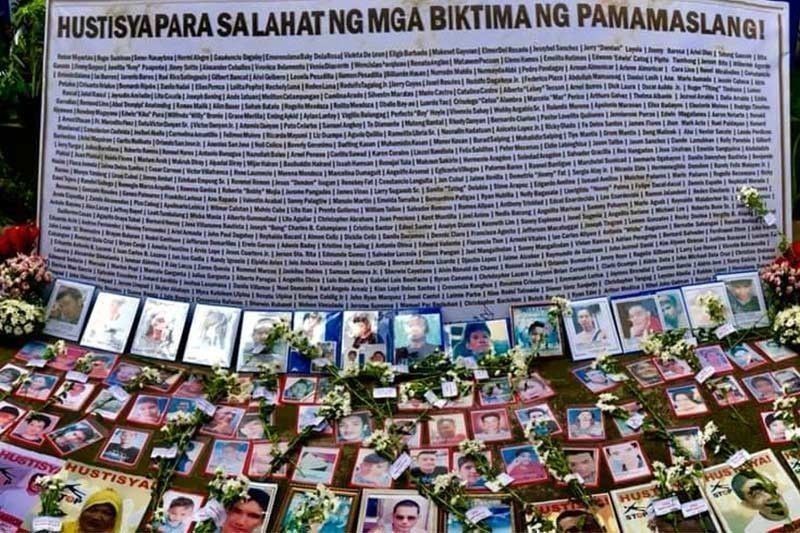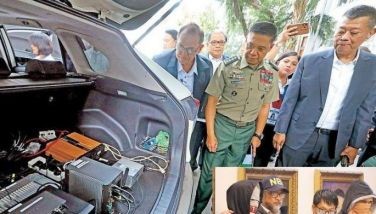'Drug war' victims' kin to ICC: No genuine local probe, no investigation into Duterte accountability

MANILA, Philippines — There is no genuine domestic investigation into President Rodrigo Duterte’s "war on drugs" and the probe does not cover policy review, families of victims told International Criminal Court Prosecutor Karim Khan amid the Philippine government’s request for deferment.
Sectoral group Rise Up, assisted by the National Union of Peoples’ Lawyers, wrote to Khan and asked his office to have the communication they sent be considered the same in the assessment of the Philippine government’s deferral request.
This was after Khan said, in a document dated November 18, that his office will temporarily suspend its investigation into the Philippines as it “assesses the scope and effect” of the government’s request for deferral.
But Rise Up asserted: "Contrary to the claim of the Philippine government, there is no genuine domestic investigation much less prosecution being conducted into crimes against humanity, in the context of ‘War on Drugs’ campaign."
No Duterte in review
The Philippines, in its letter to the ICC signed by Ambassador to the Netherlands Eduardo Malaya, said that the government is thoroughly investigating all deaths reported in anti-narcotics operations in the country.
He also cited the latest review of the Department of Justice (DOJ), including the release of an information matrix on 52 cases where administrative liability was found on the part of law enforcement officers.
But Rise Up countered that the proceedings in the Philippines’ letter do not cover investigations "into crimes committed as a part of a widespread or systematic attack against a civilian population pursuant to a state or organizational policy."
The Department of Justice's matrix of 52 cases of deadly "war on drugs” operations — a minuscule number compared to tens of thousands deaths in rights groups’ count — also treated the crimes separately, "ignoring any evident connection between the various acts," they added.
"Consequently, they do not deal with the widespread and systematic nature of the crimes nor the state policy that drive their commission," Rise Up added.
The Duterte administration has long denied that there is a policy of killing in its “war on drugs,” although the president in his speeches has encouraged security forces to shoot first if they are in danger. He has also promised to protect cops who kill in the line of duty.
They also told the ICC prosecutor that Duterte, whom they called "the person most responsible" behind the "war on drugs" campaign is not under any investigation. His former police chiefs who played key roles in the campaign are also not being probed.
"No tangible, concrete and progressive investigative or prosecutorial steps of any kind are being undertaken, by the Philippine government, against the aforementioned persons," they added.
They also pointed out that Duterte would have to approve access to information related to the "war on drugs" campaign and that this restriction applies even to the Commission on Human Rights.
ICC wants info on the investigation
Last week, Khan said his office will ask the Philippine government to provide "substantiating information" on proceedings cited in its deferral request.
He explained that the Philippines must provide information that is "of tangible evidence, of probative value and a sufficient degree of specificity, demonstrating that concrete and progressive investigative steps that have been or are currently being undertaken to ascertain the responsibility of persons for alleged conduct falling within the scope of the authorized ICC investigation."
Khan also said that while his office has temporarily suspended the investigation into matters cited by the Philippines in its deferral request, it will continue its analysis on information it already has in hand.
He added that they will also look into any new information they may receive from third parties, and will actively assess the need for applications to conduct for the preservation of evidence.
The Philippines maintains the ICC has no jurisdiction on the cases, also claiming incorrectly that the treaty the government signed and ratified to join the court was never valid. The Philippines left the ICC in 2019.
- Latest
- Trending
































